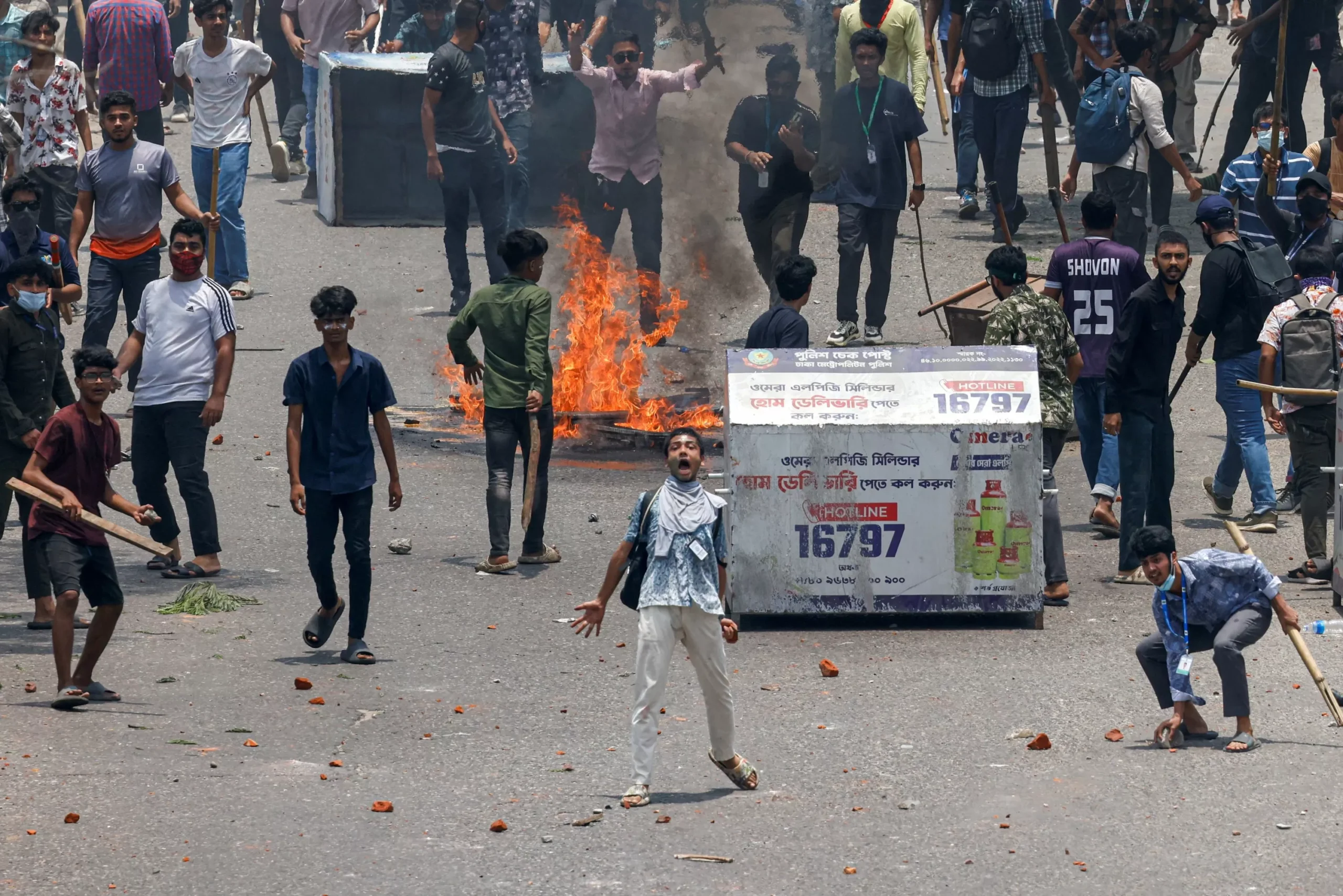At least 16 people have now been confirmed killed as thousands of students clashed with armed police across Bangladesh on Thursday. The students are protesting against a quota system in government jobs that they believe is unfair and discriminatory.
The protests, which began in April, have gained momentum in recent weeks as students from various universities and colleges across the country have joined in solidarity. The students are demanding reforms in the current quota system, which reserves a certain percentage of government jobs for specific groups, including descendants of freedom fighters and ethnic minorities.
The clashes on Thursday were the most violent yet, with reports of police using tear gas, rubber bullets, and even live ammunition to disperse the protesters. The situation quickly escalated as students retaliated by throwing stones and setting vehicles on fire. The chaos and violence have left the nation in shock and mourning for the lives lost.
The government has responded by imposing a ban on all protests and gatherings in the capital city of Dhaka, and has also shut down mobile internet services in an attempt to control the situation. However, this has only further fueled the anger and frustration of the students, who feel that their voices are being silenced.
The quota system was originally introduced in the 1970s as a way to promote social justice and provide opportunities for marginalized groups. However, over the years, it has been misused and manipulated, leading to a situation where the majority of government jobs are now reserved for a select few, leaving little room for merit-based recruitment.
The students are not only protesting against the quota system, but also against the lack of job opportunities for the youth in general. With a population of over 160 million, Bangladesh has one of the largest youth populations in the world, and yet, the job market is unable to accommodate them. This has led to a sense of hopelessness and frustration among the youth, who see the quota system as a major barrier to their future prospects.
The protests have also highlighted the larger issue of corruption and nepotism in the country. Many believe that the quota system has become a tool for the ruling party to reward their supporters and maintain their grip on power. This has further fueled the anger of the students, who see it as a blatant injustice.
Despite the violence and chaos, the students have remained united and determined in their cause. They have shown incredible resilience and bravery in the face of adversity, and their peaceful protests have garnered support from various sections of society, including teachers, professionals, and even some government officials.
The government must now listen to the voices of the students and take immediate action to address their demands. The quota system needs to be reformed to ensure equal opportunities for all, and the government must also focus on creating more job opportunities for the youth. It is time for the government to prioritize the needs and aspirations of the youth, who are the future of this nation.
The protests have also brought to light the need for a more open and inclusive dialogue between the government and its citizens. The ban on protests and internet shutdowns only serve to further alienate the youth and create a sense of mistrust towards the government. It is crucial for the government to engage in meaningful discussions with the students and address their concerns in a peaceful and democratic manner.
In the midst of all the chaos and tragedy, there is a glimmer of hope. The students have shown that they are not afraid to stand up for what they believe in, and their determination and unity have inspired many. This is a pivotal moment for Bangladesh, and it is up to the government to take the necessary steps to address the grievances of its citizens and work towards a more just and inclusive society.
In conclusion, the protests against the quota system in Bangladesh have brought to light the larger issues of corruption, nepotism, and lack of job opportunities for the youth. The government must take immediate action to address these issues and engage in open and inclusive dialogue with its citizens. The students have shown incredible courage and determination, and it is time for the government to listen to their voices and work towards a better future for all.





![Complete BritRail Pass Guide [Types, How to Use It, Pros + Cons]](https://inside-news.uk/wp-content/uploads/2025/06/00221EB4-BCA2-4DBB-6CD4-83DBC37D71FA-120x86.webp)















